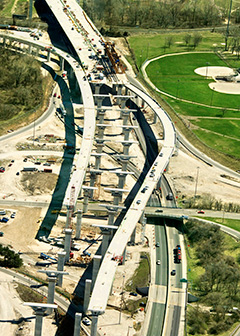
Civil engineers need a bachelor’s degree in civil engineering or one of its specialties.
Civil engineers need a bachelor’s degree. They typically need a graduate degree for promotion to managerial positions. Civil engineers who sell their own services publicly must be licensed in all states and the District of Columbia.
Education
Civil engineers must first complete a bachelor’s degree in civil engineering or one of its specialties. The degree should be from a program approved by ABET (formerly the Accreditation Board for Engineering and Technology). A program accredited by ABET is needed in order to gain licensure, which is required to work as a professional engineer (PE).
Programs in civil engineering typically take 4 years to complete and include coursework in mathematics, statistics, engineering mechanics and systems, and fluid dynamics, among other courses, depending on the specialty. Courses include a mix of traditional classroom learning and laboratory and field work.
About one of every five civil engineers has a master’s degree. Further education after the bachelor’s degree is helpful in getting a job as a manager. A civil engineer needs both a license and experience to become a manager.
Licenses
Civil engineers who sell their own services publicly must be licensed in all states and the District of Columbia. A license is required to exercise direct control of a project and to supervise other civil engineers, civil engineering technologists, and civil engineering technicians. A degree from an ABET-accredited engineering program is generally required to obtain a license.
Early in the licensing process, a civil engineer also must take and pass the Fundamentals of Engineering Examination. After passing this exam and meeting a particular state’s requirements, an engineer then becomes a Civil Engineering (CE) Intern or an Engineer-in-Training. Afterward, depending on the state, civil engineers must have a minimum of experience, pass more exams, and satisfy other requirements to qualify as a CE Professional.
Important Qualities
Complex problem-solving skills. Civil engineers work at the highest level of design and plan large infrastructure projects, such as airports and roadways, which requires solving complex problems.
Decision-making skills. Civil engineers must determine the feasibility of plans, especially regarding financial costs and safety concerns. Urban and regional planners often look to civil engineers for advice on these issues.
Leadership skills. Civil engineers are ultimately responsible for the infrastructure project’s design and implementation. Therefore, they must be able to lead surveyors, construction managers, civil engineering technicians, and others to implement the plan.
Math skills. Civil engineers use the principals of calculus, trigonometry, and other advanced topics in mathematics for analysis, design, and troubleshooting in their work.
Project management. Only licensed civil engineers can sign the plans for infrastructure projects. This makes it imperative that civil engineers be able to monitor and evaluate the work at the job site as a project progresses.
Writing skills. Civil engineers must be able to communicate with other professionals, such as architects, landscape architects, and urban and regional planners. This means that civil engineers must be able to write clear reports that people without an engineering background can follow.










